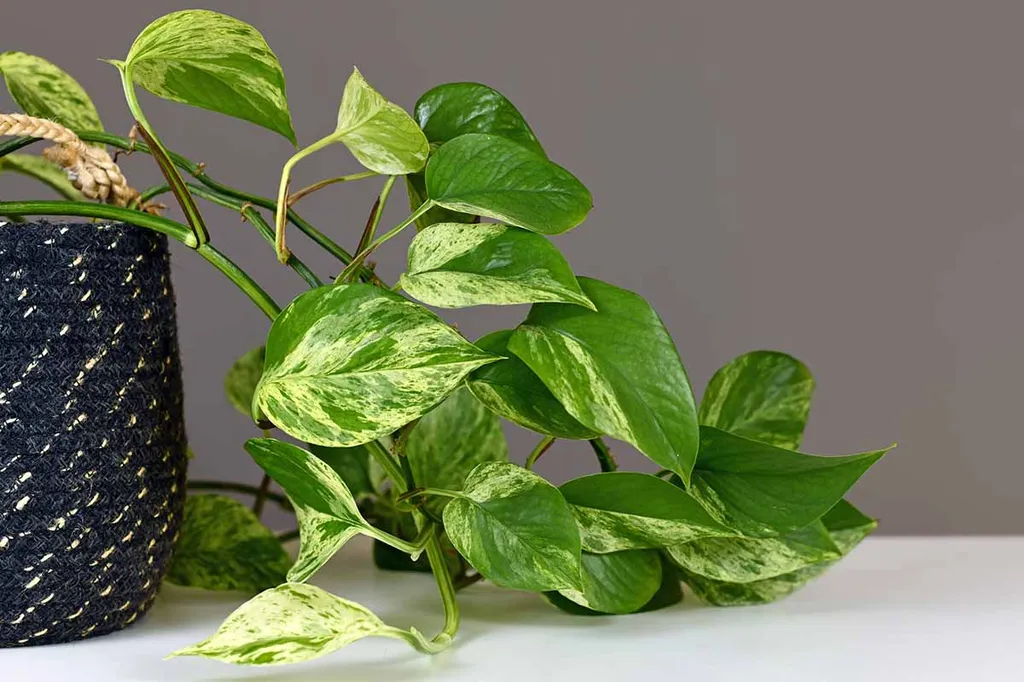In a significant stride towards enhancing the mass propagation of pothos (Epipremnum aureum), a versatile plant known for its medicinal, ornamental, and air-purifying qualities, a team of researchers led by Hai T. Nguyen from the Vietnam National University of Agriculture has developed an efficient and cost-effective in vitro propagation method. Published in the journal ‘Plants’, this study addresses critical gaps in previous research, offering promising implications for the agricultural and horticultural sectors.
The research team focused on optimizing the use of plant growth regulators and activated carbon to improve the rooting ability of shoots in vitro, as well as facilitating the transition of seedlings from in vitro conditions to greenhouse environments. By employing Murashige and Skoog (MS) medium supplemented with various concentrations and combinations of 6-benzylaminopurine (BA), kinetin (Kn), α-naphthaleneacetic acid (α-NAA), coconut water, activated carbon, and indole-3-butyric acid (IBA), the scientists achieved remarkable results.
“Our findings demonstrate that the MS medium with the addition of 2.5 mg/L BA and 1.0 mg/L Kn was optimal for shoot propagation,” explained Nguyen. This combination yielded an impressive 2.86 shoots per explant, with an average shoot length of 1.87 cm and 1.59 leaves per shoot. Notably, this treatment outperformed other combinations, including those with only BA and BA+α-NAA or Kn+α-NAA, despite having the highest total cytokinin concentration.
For rooting, the micro shoots were transferred to MS medium supplemented with 0.25 mg/L α-NAA and 0.5 g/L activated carbon (AC). This approach resulted in a 93.33% rooting success rate, with an average of 1.93 roots per explant and root lengths of 2.37 cm. This method proved superior to IBA-based treatments, which led to shorter and less branched roots.
The acclimatization phase was equally successful, with a 75% survival rate after 40 days in a 1:1 mixture of loamy garden soil and coconut coir. This research not only addresses the shortcomings of previous studies but also paves the way for developing an effective and low-cost method for reproducing pothos species in vitro by organogenesis.
The commercial implications of this research are substantial. Pothos is a highly sought-after plant for its various uses, and the increasing market demand necessitates efficient propagation methods. The optimized protocol developed by Nguyen and his team offers a scalable and cost-effective solution for mass propagation, which can significantly benefit the agricultural and horticultural industries.
As the global demand for ornamental and air-purifying plants continues to grow, the findings of this study provide a valuable tool for meeting market needs while minimizing production costs. The use of readily available and inexpensive materials further enhances the practicality of this method, making it accessible to a broader range of producers.
This research not only advances our understanding of in vitro propagation techniques but also highlights the potential for further innovations in the field. By optimizing the use of plant growth regulators and activated carbon, the study opens new avenues for improving the propagation of other plant species, contributing to the overall advancement of agricultural technology.
The work by Hai T. Nguyen and his team, published in ‘Plants’ and affiliated with the Vietnam National University of Agriculture, represents a significant step forward in the field of micropropagation and organogenesis. Their findings offer a promising solution for meeting the growing demand for pothos and other valuable plant species, with far-reaching implications for the agricultural sector.

